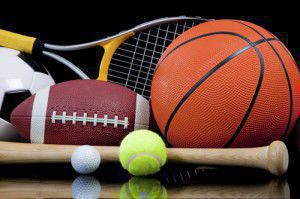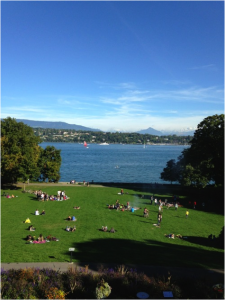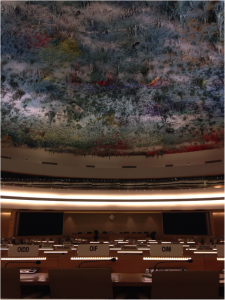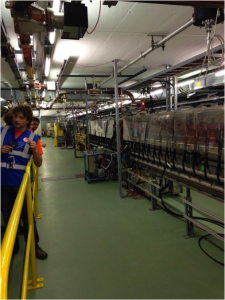10 reasons to visit… Geneva
When I tell people that I lived in Geneva for five months during my Erasmus year, most say ‘Geneva, yeah…I’ve been to the airport,’ and I have to confess that I was once amongst them. The city as far as I was concerned was a necessary stop on the way towards my most adored pastime (snowboarding), and little else. Although not high up on most students’ list of places to spend a considerable amount of time, due to its costliness and largely conservative culture, I managed to find a host of affordable enjoyments in which you can partake, if ever stuck on a flight transfer or, you know, you actually decide to visit.
Switzerland has three official languages – French, German and Italian. The language predominantly spoken in Geneva is French – don’t forget to learn a little before you go…
1. Lac Léman (pronounced “lemon” in a French-sounding accent)
A beautiful body of water 73km long that is flanked by the Jura mountains to the North and the Alps to the South. On a clear, crisp, winter’s day you can see the snowy summit of breath-taking Mont Blanc, which I can assure you, is the best cure for any heaviness of heart. If you buy a transport pass, it includes trips from one side to the other (at the narrower, city end) – just imagine if that were your daily commute! The lake is great for running around, swimming in and looking at from a variety of locations. Parks worth a visit along the banks are: ‘Mon Repos’ and the ‘Jardin Botanique’ on the Rive Gauche, or ‘La Grange’ on the Rive Droite.
2. Buvette des Bains des Pâquis, Quai du Mont Blanc
It is here that you can combine two of the most Swiss of pastimes: the eating of fondue, by a lake. Although the summer menu doesn’t offer this cheese and wine based delight, the atmosphere of the place is still something to enjoy. If you don’t fancy eating, you can also indulge in a Hammam or massage, or depending on how brave you’re feeling, jump straight in the lake. I went in in December, which I would highly recommend!
3. The ‘brocante’ at Plaine de Plainpalais
Every Wednesday and Saturday, and every first Sunday of the month, the Plaine de Plainpalais holds one of Switzerland’s largest flea markets. From old postcards to candelabras, fur coats to vintage skis, treasures abound. Food stalls selling many different international delights of various savoury and sweet description, and you could easily spend a whole morning trawling through the crates of CDs and photographs. Bargain brocante hunting!
4. The Palais de Nations
The UN offer tours in 15 different languages, through the hallways and into the conference rooms where the world’s wrongs are put to rights. The complex is centred around President Woodrow Wilson’s ‘League of Nations’ building from the 1920s, and the view out onto the lake is in itself pretty inspiring. All in all, a worthwhile experience.
5. International Red Cross and Crescent Museum
The Red Cross was founded in Geneva in 1863 with a view to offering support and relief to wounded soldiers. Since then, the organisation has grown to protect victims of international and domestic conflict. This museum was harrowing and heart-warming at the same time, with so many first-person sources, and an impressive interactive learning facility.
6. Proximity to ski resorts
Ok, arguably this isn’t a reason to visit Geneva, but it’s definitely something that’s great about the city. There are 23 resorts within an hour’s drive, making a weekend break in the mountains a perfectly viable option. If you’re wanting to go further afield, many companies run regular bus services from the airport, which is only a ten-minute efficiently-run Swiss train ride away from the centre.
7. Cathédrale St. Pierre
Situated on the hill of the beautiful old town of Geneva, this Cathedral has a spectacular panoramic view of the city and the mountains that lie beyond. The cathedral itself is an impressive structure, and inside lies the chair of Jean Calvin, one of the pivotal figures of the 16th century Protestant Reformation.
8. CERN
Whilst living in Geneva, I was lucky enough to attend a CERN open day and it thoroughly amazed and confused me. The European Centre for Nuclear Research is a complicated network of warehouses and research buildings that give the appearance of a large village, oh, and there’s a 27km underground Large Hadron Collider too. The visit was more science than I have learnt in my whole life, squished into an afternoon, and I left frazzled but fascinated!
9. Ice Hockey
I will confess that I was already an ice hockey fan before moving to Geneva, but watching Genève Servette play really entrenched my love for the sport. The atmosphere at a game is instantly electric because not only are the fans excited, but also cold, so everyone shouts and jumps right from the get go. The team are definitely worth watching too – this last season they made it to the semi-final of the Swiss National Championships where they had to play ZSC Lions seven times, and unfortunately lost out on a finals place only in the last game.
10. Carouge
This little market town, south of the city, is full of boutiques and hosts a variety of themed markets throughout the year. There are the regular stalls selling meat, cheese, fruit and veg, but it’s worth going at Christmas time to get a sense of the community. Another favourite was when I was there in October and they had a sheep-shearing demonstration and a petting zoo, complete with a show where a sheepdog herded some geese. #Switzerweird
Have you been to Geneva? Share your own reasons to visit in the comments – and remember, we’re always open to suggestions for new places to feature!
Lucy
10 sport stars who speak other languages
 It can often feel like life is all about sport, whether we like it or not. But have you ever wondered how good sports stars are at languages?
It can often feel like life is all about sport, whether we like it or not. But have you ever wondered how good sports stars are at languages?
It turns out, pretty good. Like anyone who has to travel a lot for their work, athletes often find knowing only their native language isn’t enough. Here are 10 great examples of sports stars who speak more than one language.
Gary Lineker
Besides English, the former footballer learnt Spanish while he was playing for Barcelona, and picked up some Japanese when he later moved to Nagoya Grampus Eight. He’s now a passionate ambassador for languages in schools, saying in an interview with TES last year, ‘the learning of languages, for me, will always be helpful for the vast majority at some stage in their life’.
Roger Federer
Not content with winning a frankly quite ridiculous 17 Grand Slam titles, the Swiss tennis player also speaks four languages fluently – his native Swiss German along with French, English and German. He’s known for his ability to switch effortlessly between languages in interviews and press conferences and can quite comfortably answer journalists’ questions in their own language, a feat some of his fellow tennis players can’t keep up with. Wouldn’t be the first time.
Tom Daley
The British diver recently got an A in his Spanish A-level (congrats, Tom!), and makes good use of his language skills when in Mexico, where he spends a lot of his time. Here’s a video of him showing off his Spanish.
Jonny Wilkinson
Here in England, Jonny Wilkinson is known (at least by me) as that guy who’s pretty good at drop goals. But he’s also a bit of a superstar in France, where he’s been playing for Toulon since 2009. He’s now fluent in French and was awarded honorary citizenship of Toulon earlier this week – giving his acceptance speech in the local language, of course.
Fernando Alonso
The Spanish Formula One racing driver speaks an impressive four languages – Spanish, Italian, English and French. And in case that’s not enough, he’s apparently working on Russian too.
Arsene Wenger
The Arsenal manager is well known for his interest in languages, speaking French, English, German, Spanish, Italian and Japanese. Like Gary Lineker, Wenger’s also known as an ambassador for languages, and last year he was voted Britain’s first Public Language Champion by readers of The Guardian. In this video he explains why languages are so important.
Novak Djokovic
Never one to let Roger take all the glory, fellow tennis champion Novak Djokovic speaks five languages – Serbian, English, German, Italian and French. He studied English and German at primary school, and learned Italian when he worked with coach Riccardo Piati. In an interview with Tennis Talk in 2013, he said, ‘We have a saying in our country: The more languages you know, the more is your worth as a person. I like to understand what people are saying wherever I am, at least to pick up a few phrases of those languages.’
Paula Radcliffe
Long-distance runner Paula Radcliffe has a first-class degree from Loughborough University in European Studies, and speaks French and German fluently. She now lives in Monaco with her husband and two children, who are both bilingual, attending a French school but also fluent in English.
Cesc Fabregas
Another Barcelona footballer, Fabregas speaks four languages – Spanish, Catalan, English and French, and his Twitter feed is multilingual. When asked about his language skills in 2005, he replied, ‘These days you have to keep studying, not least because my mum tells me so.’ Words to live by.
Daniela Hantuchova
And finally, another tennis player, because tennis is my favourite. Daniela Hantuchova, from Slovakia, is by all accounts a very talented lady. Besides her tennis career, she’s also a trained classical pianist, and speaks – wait for it – six languages: Slovak, Czech, English and German fluently, and some Croatian and Italian.
Does anyone else feel like a bit of an underachiever now, or is it just me?
If you know any other examples of sports stars who speak other languages, please tell us about them in the comments.



